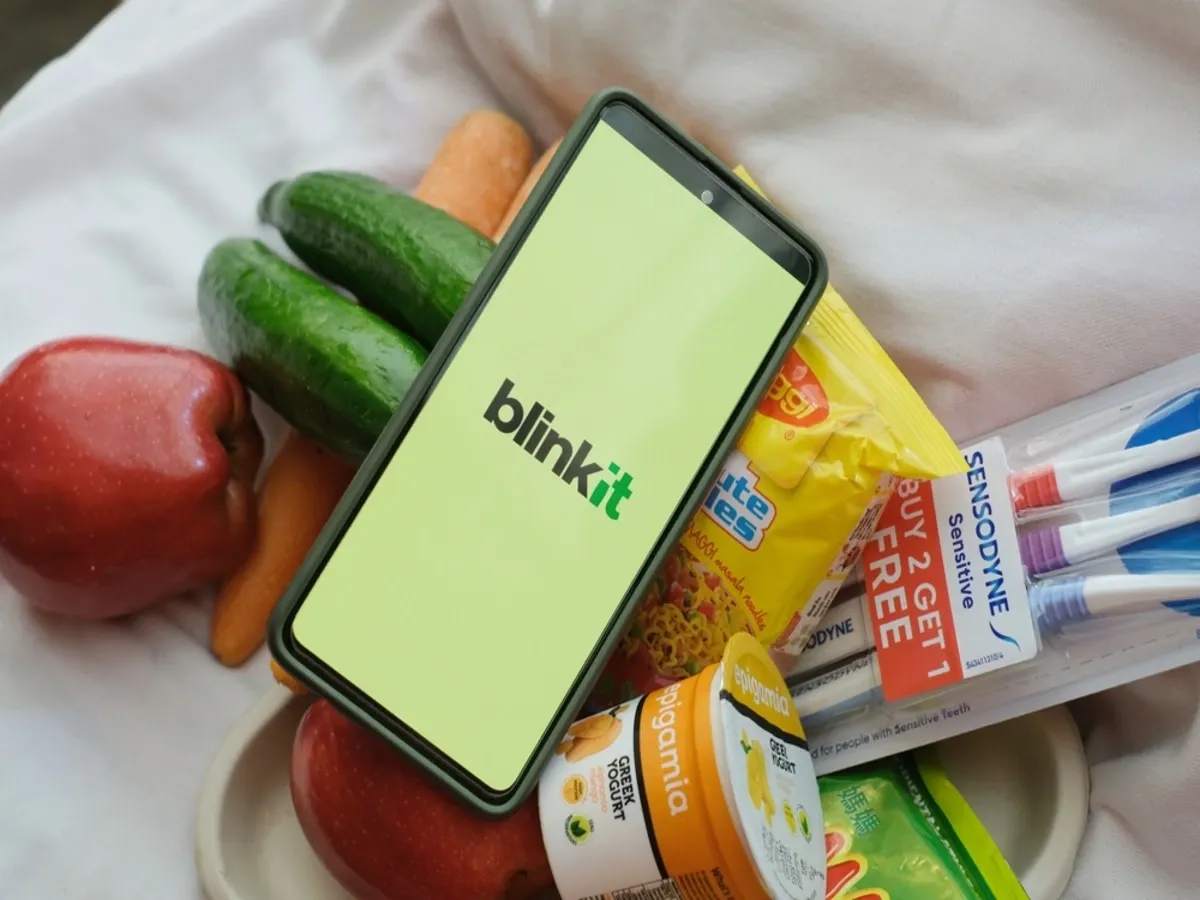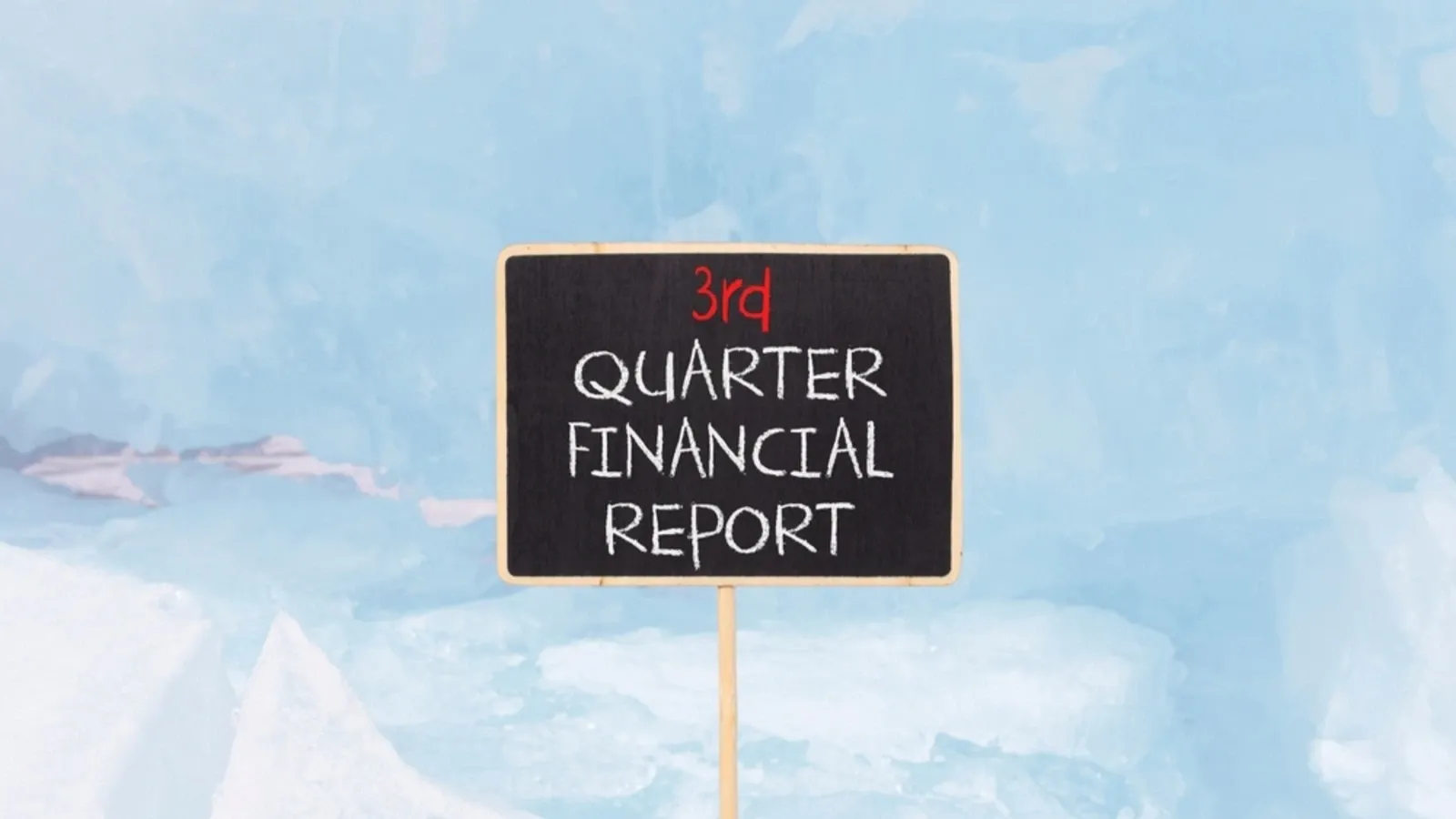Market News
Eternal surpasses DMart in market cap: Five factors why investors remain optimistic about Blinkit's parent despite tepid earnings

6 min read | Updated on August 04, 2025, 10:39 IST
SUMMARY
Eternal, parent of Zomato and Blinkit, surpassed DMart in market cap, hitting ₹2.93 lakh crore vs DMart’s ₹2.75 lakh crore. Despite lower profit, Eternal’s 70% YoY revenue growth, driven by Blinkit and Product innovation and new ventures like EVs and aviation, reflects investor confidence in future growth compared to near-term tepid earnings.

Blinkit’s revenue jumped 155% to ₹2,400 crore in Q1FY26, propelled by rapid expansion to 1,544 dark stores.
In a watershed moment for Indian retail, Eternal (parent of Zomato & Blinkit) surpassed Avenue Supermarts (DMart) in market capitalisation last week, marking a dramatic shift and giving signs about investor preference in the growing consumer-facing segment. As of Friday, August 1, 2025, Eternal shares closed at ₹304.6 per share with a market cap of around ₹2.93 lakh crore. In comparison, DMart’s share price stood at ₹4,216 with a market cap was ₹2.74 lakh crore. At its July peak, Eternal’s market cap hit ₹3 lakh crore, outperforming over 20 heavyweight Nifty 50 companies, including Wipro and Tata Motors.
Recent events: The story behind the numbers
- Eternal: Shares skyrocketed to record highs in July after Q1 FY26 results showed revenue up 70% YoY to ₹7,521 crore, driven by Blinkit’s explosive growth. However, net profit declined sharply to ₹25 crore, down 90% YoY, partly due to heavy investments in rapid expansion and new ventures like EV and “aroPlane”.
- DMart: Despite adding new stores, DMart’s Q1FY26 revenue rose only 16.3% YoY to ₹16,360 crore, and net profit dipped slightly to ₹773 crore. The company continues to face margin pressure even as physical retail grows sluggishly.
| Parameter | Eternal (Q1FY26) | DMart (Q1FY26) |
|---|---|---|
| Revenue (₹ cr) | 7167 | 16,360 |
| Net Profit (₹ cr) | 25 | 772.81 |
| Profit Margin (%) | 0.34 | 4.72 |
| Market Cap | ₹2.93 lakh crore | ₹2.75 lakh crore |
| PE Ratio | 912.91 | 103.14 |
- Eternal’s topline is booming with revenue up 70% YoY, compared to DMart’s 16%.
- Margins are much slimmer for Eternal due to expansion and reinvestment; investors are betting on future growth over near-term earnings.
- Eternal’s PE ratio is reaching 912, against DMart’s 103, signalling investors are willing to pay a premium for the stock, possibly expecting strong future earnings growth. However, if earnings don’t catch up, the stock may be considered overpriced.
Going by the high PE ratio of Eternal, investors are showing high interest in Zomato's parent company. Since April 2025, the Eternal stock has risen over 44%, while DMart shares delivered just a 3.6% return during the same period.
Robust revenue growth
Eternal’s Q1FY26 revenue soared 70% year-on-year to ₹7,167 crore, driven largely by Blinkit, whose net and gross order values surpassed Zomato’s food delivery for the first time.
Blinkit’s revenue jumped 155% to ₹2,400 crore, propelled by rapid expansion to 1,544 dark stores and a rise in monthly transaction customers to 1.69 crores. The average order value of Blinkit grew by 7% YoY to ₹669, while total orders received rose 126% YoY to 17.6 crore. However, Blinkit's business is yet to achieve profitability as the adjusted EBITDA loss for the quarter stood at ₹162 crore, which rose sharply compared to ₹3 crore a year earlier but narrowed from ₹178 crore in Q4FY25
Meanwhile, Eternal's overall net profit dipped to ₹25 crore due to continued investments. Experts believe that despite tepid earnings, the market sentiment is positive towards the stock amid its aggressive, quick commerce growth.
Shift to inventory-based model: The hidden advantage
- Blinkit is shifting to a full inventory-led model (dark store), now directly purchasing goods from sellers and brands rather than simply storing marketplace stock. This transition, enabled by parent Eternal’s new Indian-owned status, gives Blinkit greater control over logistics, pricing, quality, and delivery speed.
- The model streamlines GST and compliance for sellers, turning shipments into direct sales and reducing regulatory hassle. Eternal projects that Blinkit will need less than ₹1,000 crore in working capital, just 3-4% of gross order value due to rapid inventory turnover.
- This change is expected to boost margins, simplify operations, and allow Blinkit to manage supply more flexibly as consumer trends shift. Expansion of dark store networks is yielding rapid volume and market share gains, winning over both analysts and institutional investors.
Product innovation and new ventures
- Eternal’s new ventures showcase its bold push beyond food delivery. With the launch of LAT Aerospace, targeting affordable, high-frequency regional flights using compact, 24-seater STOL aircraft operating from small “air-stops”—a bid to make flying as accessible as bus travel for India’s underserved towns.
- Parallelly, Zomato’s EV rental pilot aims for 100% electric deliveries by 2030, already enlisting over 37,000 EV-based partners and slashing thousands of tonnes of CO₂ emissions. The company accelerates awareness with EV fairs, financing partnerships, and in-app support for delivery partners.
- Another important move is launching Blinkit Foods Limited to scale 10-minute ultra-fast food delivery. Blinkit Foods is proposed to be incorporated as a wholly owned subsidiary and would engage in the business of providing food services (including innovation, preparation, sourcing, sale, and delivery of food to customers).
- Eternal’s integrated push, combining aviation, EV adoption, rapid food innovation, and robust sustainability goals, underscores its drive to lead in digital disruption and green growth across consumer services.
Shift from offline to online grocery
India’s grocery retail is rapidly shifting from offline to online, driven by quick commerce (q-commerce), growing over 40% annually and becoming a go-to for regular monthly shopping. 20% of offline shoppers now buy entire groceries online, with 60% preferring monthly staples digitally. This shift is squeezing smart physical stores; DMart is experiencing slow-paced sales growth per store and slowing revenue expansion due to digital competition. Kirana stores face even greater disruption as consumers favour the speed and convenience of q-commerce apps. DMart, rooted in offline value retail, is struggling to adapt, while Eternal is set to ride the wave.
Rapid growth in Blinkit business
- One of the key reasons investors are increasingly preferring Eternal is Blinkit’s explosive growth in quick commerce—a segment that has now overtaken Zomato in Net Order Value (NOV) for the first time. With quick commerce NOV reaching to ₹9,203 crores (up by 127% YoY) and Blinkit adding 243 new stores in just one quarter (reaching a total of 1,544 with plans for 2,000 by year's end).
- Eternal is rapidly expanding its reach and dominance. The boost in warehousing capacity to over 5.6 million sq ft further underscores the company’s scalability and operational strength.
- This shift signals to investors that Eternal is not just diversifying its portfolio but also capitalising on the fastest-growing segment in Indian retail, thus driving sustained top-line momentum and reinforcing its edge over more traditional, slower-growing competitors like DMart.
| Quarter | GOV (₹ cr) | Stores | Warehousing (mn sq ft) |
|---|---|---|---|
| Q1FY25 | 4,923 | 976 | - |
| Q4FY25 | 9,421 | 1,301 | 5.2 |
| Q1FY26 | 11,821 | 1,544 | 5.6 |
Before you leave
Eternal’s rise signals a new era in Indian retail, where tech-driven agility and innovation define leadership. Investors favour Eternal’s growth potential, marking a clear shift towards e-commerce dominance and challenging legacy offline retailers like DMart.
About The Author
Next Story


